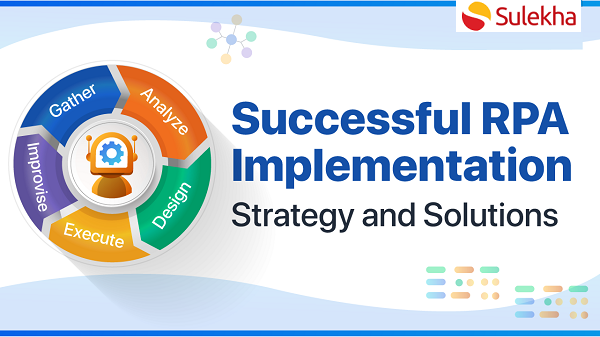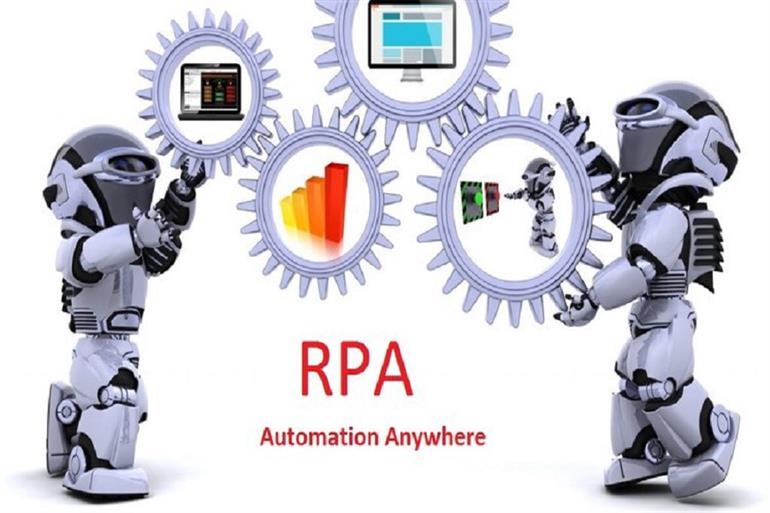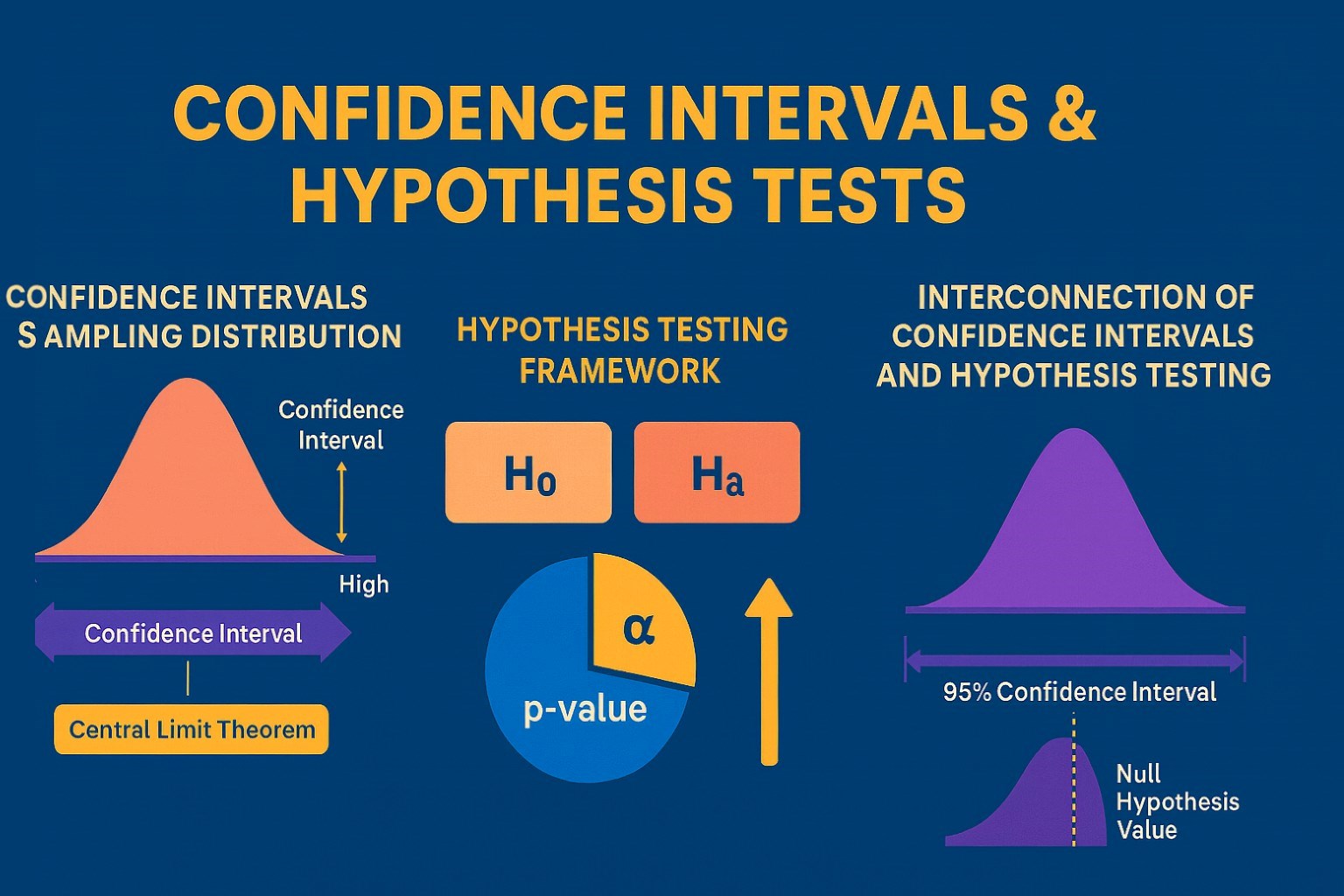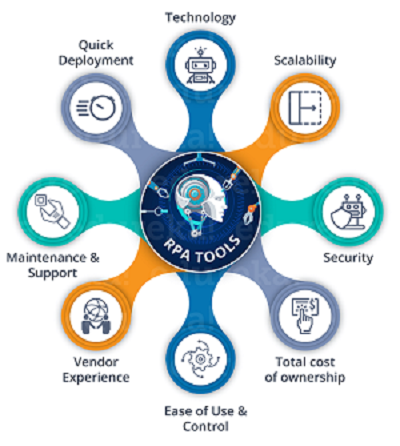RPA Tools and Technologies: Choosing the Right Platform for Your Business
RPA Tools and Technologies: Choosing the Right Platform for Your Business
Introduction
As organizations look to computerize a greater amount of their tasks, they are going to Robotic Process Automation (RPA) as a method for further developing proficiency and efficiency. RPA is a type of man-made brainpower that can be utilized to mechanize redundant, rules-based undertakings. There are a number of different RPA tools and technologies on the market, and choosing the right one for your business can be a challenge. In this article, we will take a look at some of the most popular RPA platforms and help you decide which one is best suited for your business. This article will help you to understand different RPA tools and technologies so you can decide which one is best for your business. Let’s get started!
What is Robotic process automation?
RPA utilize different kinds of innovation that helps people within an organization in designing certain kinds of programming that helps to understand existing applications that are used to perform transactions, data manipulation and speaking with other computerized digital systems.
RPA is a type of business process automation which is utilized for automating rules-based, repetitive tasks currently carried out by humans. RPA can help businesses improve efficiency and accuracy by automating these tasks which reduces the dependency of these systems on humans. Currently, these technologies are trending in different sectors such as financial services, manufacturing, healthcare, retail and telecom. Some of the most popular applications for RPA include order processing, customer service, warehouse management and supply chain management.
Factors to consider when selecting an RPA platform
1. Cost: One of the main considerations when selecting an RPA platform is cost. Many RPA tools are free to use, but there are also paid options available. It important to find a tool that meets your specific needs without breaking the bank.
2. Scalability: Another key factor to consider is scalability. Many RPA tools are designed for small businesses, but some are also capable of handling larger projects. Make sure you understand the capabilities of the tool before deciding whether or not it is suitable for your business.
3. Flexibility: One of the benefits of using an RPA platform is that it can be adapted to meet your specific needs and preferences. You must choose a platform that has a wide range of features so that you can customize it to fit your specific needs.
4. Automation: One of the key benefits of using an RPA platform is that it can automate many of the tasks involved in business operations. It is essential to ensure sure that the platform has features that allow you to automate tasks quickly and easily.
The term “Robotic Process Automation” (RPA) has been making waves in the business world for some time now. It is seen as a transformative technology that has the potential to automate a wide range of manual, repetitive tasks across different industries.
However, with the increasing popularity of RPA, there is also a growing number of RPA tools and technologies available in the market. This can make it difficult for businesses to choose the right platform for their needs. This article will discuss the different types of RPA tools and their respective pros and cons. It will also provide a recommendation for the best platform based on your business needs.
Types of RPA Tools
There are three main types of RPA tools: cloud-based, on-premises, and hybrid.
Cloud-based tools are the most popular type because they allow you to access them from any device or location. They also have a wide range of features, making them suitable for a variety of businesses. However, cloud-based tools are more expensive to use than on-premises or hybrid tools.
On-premises tools are installed on your own server and can be used by a small or medium business. They have the advantage of being customizable and scalable, making them perfect for larger businesses. However, on-premises tools can be more expensive than cloud-based or hybrid tools.
Hybrid tools combine features from both cloud-based and on-premises tools. They are the most cost effective option and are perfect for businesses that need a combination of features from both types of tools.
The best RPA technology for your business will depend on your specific needs and objectives. However, some of the most popular RPA technologies include UiPath, Blue Prism, and Automation Anywhere. These platforms offer a wide range of features and capabilities that can be tailored to your specific business requirements. You can also search for a RPA provider who specializes in matching your specific needs. This will likely be the most cost-effective option.
Benefits of using RPA Tools
There are a number of benefits to using RPA technology, including the following:
1. Reduced Costs: Using RPA technology can save you money on staffing costs. By automating certain tasks and processes in your business, you can reduce the need for human workers. This can help to reduce your overall operating costs.
2. Increased Efficiency: By automating certain tasks and processes in your business, you can increase your efficiency and productivity. It will help to produce more products in a significantly less amount of time.
3. Increased Productivity: Using RPA technology can help to improve your productivity and efficiency in your business. With RPA tools, you can achieve faster outcomes and greater results.
4. Reduced Time spent on Tasks: Using RPA technology can reduce the amount of time that you spend on tasks that are typically handled by human workers. It free up valuable time for you to focus on more important tasks in your business.
5. Greater Flexibility: Using RPA technology helps you to automate tasks and processes that are difficult or impossible to do manually. This can give you greater flexibility in your business and increased agility.
6. Reduced Costs: Using RPA technology can save you money on staffing costs. By automating certain tasks and processes in your business, you can reduce the need for human workers. It assists in reducing your overall operating costs.
Recommendation
For small to medium businesses, we recommend using a cloud-based tool such as IBM’s Watson Studio or Microsoft’s PowerApps. These tools have a wide range of features and are easy to use, making them perfect for businesses of all sizes.
For larger businesses, we recommend using an on -premises tool such as Salesforce’s Einstein or Oracle’s PeopleSoft. These tools are highly customizable and offer a wide range of features, making them perfect for businesses with specific needs.
Robotic process automation, or RPA, is a form of business process automation technology that uses software robots, or “bots,” to complete repetitive, rules-based tasks usually performed by humans. RPA is similar to other BPA technologies, but with one key difference: RPA bots are designed to interact with digital systems in the same way that humans do, using the same user interface (UI). This allows RPA bots to replicate the actions of human users, including the ability to read and understand documents, enter data, click links, and interact with other applications.
There are a number of factors to consider when selecting an RPA platform. First, the type of work that will be automated must be determined. RPA can automate a variety of tasks, from basic customer service tasks such as answering phone inquiries or filling out forms to more complex processes such as sales or marketing automation. Second, the specific features required by the task must be identified. For example , some RPA platforms require that the bots be able to interact with digital systems, while others do not. Third, the budget and timeline for implementation must be considered. Some RPA platforms are more expensive than others, and may require additional software or hardware purchases in order to fully implement them. Finally, the size of the organization and the number of employees involved in automating tasks should be considered.
RPA tools and technologies are significant for business because they allow businesses to automate tasks and processes. This can help businesses improve efficiency and productivity, and save money. Additionally, RPA can help businesses to improve accuracy and compliance, and to reduce risks. Additionally, RPA can help businesses to automate complex and repetitive tasks, which can improve the quality of work and allow employees to focus on more complex tasks. Finally, RPA can help businesses to improve customer service and to create a more seamless customer experience.
Conclusion
RPA tools and technologies are significant for business because they can automate processes and tasks. This can help businesses improve efficiency and accuracy, and free up employees to focus on more strategic tasks. Additionally, RPA can help businesses save money on labor costs by eliminating the need for manual data entry or other repetitive tasks. Finally, RPA can help businesses improve compliance with regulations and internal policies. By automating processes, businesses can ensure that they are following all the necessary steps and procedures. This can help businesses avoid potential penalties and keep their operations running smoothly. Overall, RPA tools and technologies are a powerful way for businesses to improve their efficiency and productivity. They can help businesses focus on their core competencies and achieve goals that were previously impossible or too time-consuming to achieve.
Find a course provider to learn Robotic Process Automation (RPA)
Java training | J2EE training | J2EE Jboss training | Apache JMeter trainingTake the next step towards your professional goals in Robotic Process Automation (RPA)
Don't hesitate to talk with our course advisor right now
Receive a call
Contact NowMake a call
+1-732-338-7323Take our FREE Skill Assessment Test to discover your strengths and earn a certificate upon completion.
Enroll for the next batch
rpa certification online
- Dec 12 2025
- Online
rpa certification online
- Dec 15 2025
- Online
rpa certification online
- Dec 16 2025
- Online
rpa certification online
- Dec 17 2025
- Online
rpa certification online
- Dec 18 2025
- Online
Related blogs on Robotic Process Automation (RPA) to learn more

Who can Learn Robotic Process Automation?
Master Robotic Process Automation (RPA) and transform your career with our comprehensive courses, designed for anyone looking to improve their chances of getting job in the near future.

5 Leading Robotic Process Automation Tools
5 leading tools offer advanced features such as AI, machine learning, and low-code development to streamline workflows, reduce errors, and increase efficiency.

What is RPA certification
Robotic Process Automation (RPA) has emerged as a transformative force in the realm of business process automation, and the demand for RPA certification is on the rise. Let's delve into the factors that make RPA certification highly sought after in t

Which RPA Certification is in High Demand
RPA (Robotic Process Automation) certification is in high demand primarily due to the widespread adoption of automation technologies across industries. As businesses seek to enhance operational efficiency, reduce costs, and improve productivity, RPA

Robotic Process Automation in Finance Market Analysis, 2031
Automation has surged in demand due to its transformative impact on industries and businesses across the globe. Automation offers a powerful solution in an era marked by digitalization and efficiency. It enables organizations to streamline operations

RPA Implementation and Deployment: Best Practices for Successful Automation Projects
Introduction The deployment of

Learn all about RPA Robotic Process Automation Tools and Technology
What is robotic process automation?
Latest blogs on technology to explore

From Student to AI Pro: What Does Prompt Engineering Entail and How Do You Start?
Explore the growing field of prompt engineering, a vital skill for AI enthusiasts. Learn how to craft optimized prompts for tools like ChatGPT and Gemini, and discover the career opportunities and skills needed to succeed in this fast-evolving indust

How Security Classification Guides Strengthen Data Protection in Modern Cybersecurity
A Security Classification Guide (SCG) defines data protection standards, ensuring sensitive information is handled securely across all levels. By outlining confidentiality, access controls, and declassification procedures, SCGs strengthen cybersecuri

Artificial Intelligence – A Growing Field of Study for Modern Learners
Artificial Intelligence is becoming a top study choice due to high job demand and future scope. This blog explains key subjects, career opportunities, and a simple AI study roadmap to help beginners start learning and build a strong career in the AI

Java in 2026: Why This ‘Old’ Language Is Still Your Golden Ticket to a Tech Career (And Where to Learn It!
Think Java is old news? Think again! 90% of Fortune 500 companies (yes, including Google, Amazon, and Netflix) run on Java (Oracle, 2025). From Android apps to banking systems, Java is the backbone of tech—and Sulekha IT Services is your fast track t

From Student to AI Pro: What Does Prompt Engineering Entail and How Do You Start?
Learn what prompt engineering is, why it matters, and how students and professionals can start mastering AI tools like ChatGPT, Gemini, and Copilot.

Cyber Security in 2025: The Golden Ticket to a Future-Proof Career
Cyber security jobs are growing 35% faster than any other tech field (U.S. Bureau of Labor Statistics, 2024)—and the average salary is $100,000+ per year! In a world where data breaches cost businesses $4.45 million on average (IBM, 2024), cyber secu

SAP SD in 2025: Your Ticket to a High-Flying IT Career
In the fast-paced world of IT and enterprise software, SAP SD (Sales and Distribution) is the secret sauce that keeps businesses running smoothly. Whether it’s managing customer orders, pricing, shipping, or billing, SAP SD is the backbone of sales o

SAP FICO in 2025: Salary, Jobs & How to Get Certified
AP FICO professionals earn $90,000–$130,000/year in the USA and Canada—and demand is skyrocketing! If you’re eyeing a future-proof IT career, SAP FICO (Financial Accounting & Controlling) is your golden ticket. But where do you start? Sulekha IT Serv

Train Like an AI Engineer: The Smartest Career Move You’ll Make This Year!
Why AI Engineering Is the Hottest Skillset Right Now From self-driving cars to chatbots that sound eerily human, Artificial Intelligence is no longer science fiction — it’s the backbone of modern tech. And guess what? Companies across the USA and Can

Confidence Intervals & Hypothesis Tests: The Data Science Path to Generalization
Learn how confidence intervals and hypothesis tests turn sample data into reliable population insights in data science. Understand CLT, p-values, and significance to generalize results, quantify uncertainty, and make evidence-based decisions.
